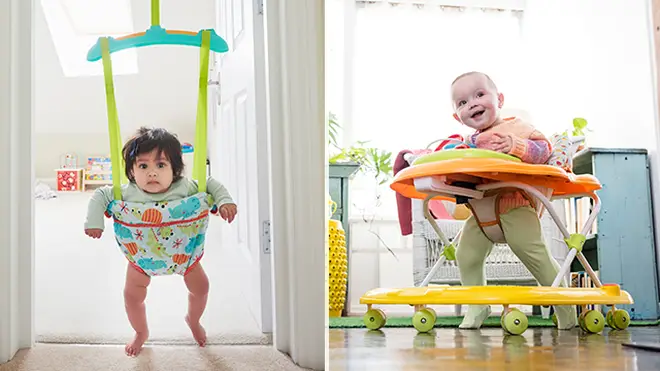On Air Now
Heart's Club Classics with Pandora Christie 7pm - 11pm
23 October 2018, 11:01 | Updated: 23 October 2018, 11:50

Baby bouncers and walkers have been linked to problems with a youngster's development, including a delay in reaching milestones and damage to leg muscles.
It's unusual to meet a family who hasn't got a bouncer for their littl'un, but new research claims they could cause serious long term harm.
Excessive use of baby bouncers could cause significant problems to your baby, according to new reports.
Not only does it limit the amount of time a baby spends learning to crawl and move around the floor, it can also affect their ability to walk.
This is due to the devices encouraging them to stand on their tip toes, which can lead to tight calf muscles and, in some cases, surgery or casting could be required.
Read more: Meghan Markle's due date and latest pregnancy gossip revealed
Dr Nicola Spurrier, Deputy Chief Medical Officer for South Australia Health, explains: "Excessive time in walkers and jumpers teaches babies to stand up on their tip toes, causing their calf muscles to tighten and affecting their ability to walk.
“In some cases requiring treatment with casting or surgery.
Read more: Mums with three kids are the most stressed out
“Babies miss out on valuable floor time when spending too much time in walkers and jumpers, bypassing important development stages such as rolling and crawling.”
CEO of Kidsafe, Holly Fitzgerald, also urged parents to favour floor time over bouncers or walkers.
She added: "The best thing parents can do to help their baby’s development is to let them spend plenty of time on the floor in a safe space where they can learn to roll, sit up and crawl.”
In particular, the charity urged baby walkers to not become the norm in a household, as they have the additional risk of allowing tots to move quickly, therefore putting themselves in more danger of gaining access to things that would normally be out of reach.